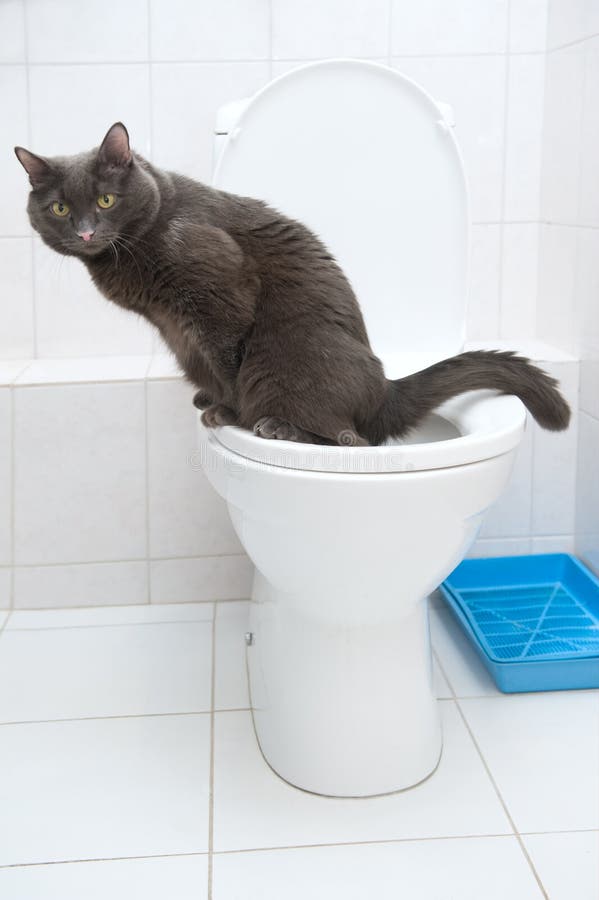Reasons You Shouldn't Flush Cat Poop Down Your Toilet - Maintain Your Pipe Health
Reasons You Shouldn't Flush Cat Poop Down Your Toilet - Maintain Your Pipe Health
Blog Article
The writer is making several good points related to Can You Flush Cat Poo or Litter Down the Toilet? as a whole in the article further down.

Intro
As cat proprietors, it's essential to bear in mind exactly how we deal with our feline pals' waste. While it may seem practical to flush cat poop down the toilet, this technique can have detrimental repercussions for both the setting and human health and wellness.
Environmental Impact
Purging cat poop presents harmful microorganisms and bloodsuckers right into the water system, positioning a substantial threat to water ecosystems. These contaminants can adversely impact aquatic life and concession water quality.
Wellness Risks
In addition to ecological problems, flushing pet cat waste can also present wellness dangers to people. Cat feces may contain Toxoplasma gondii, a bloodsucker that can trigger toxoplasmosis-- a possibly severe health problem, particularly for pregnant women and individuals with damaged immune systems.
Alternatives to Flushing
Luckily, there are safer and much more responsible ways to deal with cat poop. Think about the adhering to alternatives:
1. Scoop and Dispose in Trash
One of the most common method of getting rid of feline poop is to scoop it into a naturally degradable bag and throw it in the garbage. Make certain to make use of a devoted clutter inside story and throw away the waste promptly.
2. Use Biodegradable Litter
Go with biodegradable feline trash made from products such as corn or wheat. These clutters are eco-friendly and can be securely dealt with in the trash.
3. Bury in the Yard
If you have a yard, take into consideration hiding feline waste in an assigned area away from vegetable yards and water resources. Make sure to dig deep sufficient to prevent contamination of groundwater.
4. Install a Pet Waste Disposal System
Invest in a pet waste disposal system specifically designed for cat waste. These systems make use of enzymes to break down the waste, lowering odor and ecological effect.
Conclusion
Accountable family pet possession prolongs beyond giving food and shelter-- it also includes correct waste monitoring. By refraining from purging cat poop down the commode and choosing different disposal methods, we can lessen our ecological footprint and secure human wellness.
Why You Should Never Flush Cat Poop Down the Toilet
A rose by any other name might smell as sweet, but not all poop is created equal. Toilets, and our sewage systems, are designed for human excrement, not animal waste. It might seem like it couldn’t hurt to toss cat feces into the loo, but it’s not a good idea to flush cat poop in the toilet.
First and foremost, assuming your cat uses a litter box, any waste is going to have litter on it. And even the smallest amount of litter can wreak havoc on plumbing.
Over time, small amounts build up, filling up your septic system. Most litter sold today is clumping; it is made from a type of clay that hardens when it gets wet. Ever tried to scrape old clumps from the bottom of a litter box? You know just how cement-hard it can get!
Now imagine just a small clump of that stuck in your pipes. A simple de-clogger like Drano isn’t going to cut it. And that means it’s going to cost you big time to fix it.
Parasitic Contamination
Believe it or not, your healthy kitty may be harboring a nasty parasite. Only cats excrete Toxoplasma in their feces. Yet it rarely causes serious health issues in the cats that are infected. Most people will be fine too if infected. Only pregnant women and people with compromised immune systems are at risk. (If you’ve ever heard how women who are expecting are excused from litter cleaning duty, Toxoplasma is why.)
But other animals may have a problem if infected with the parasite. And human water treatment systems aren’t designed to handle it. As a result, the systems don’t remove the parasite before discharging wastewater into local waterways. Fish, shellfish, and other marine life — otters in particular — are susceptible to toxoplasma. If exposed, most will end up with brain damage and many will die.
Depending on the species of fish, they may end up on someone’s fish hook and, ultimately on someone’s dinner plate. If that someone has a chronic illness, they’re at risk.
Skip the Toilet Training
We know there are folks out there who like to toilet train their cats. And we give them props, it takes a lot of work. But thanks to the toxoplasma, it’s not a good idea.

We were made aware of that article on Don’t flush cat feces down the toilet through someone on a different web address. Don't hesitate to take the opportunity to share this write-up if you enjoyed reading it. Thanks for your time. Visit us again soon.
Call Today Report this page